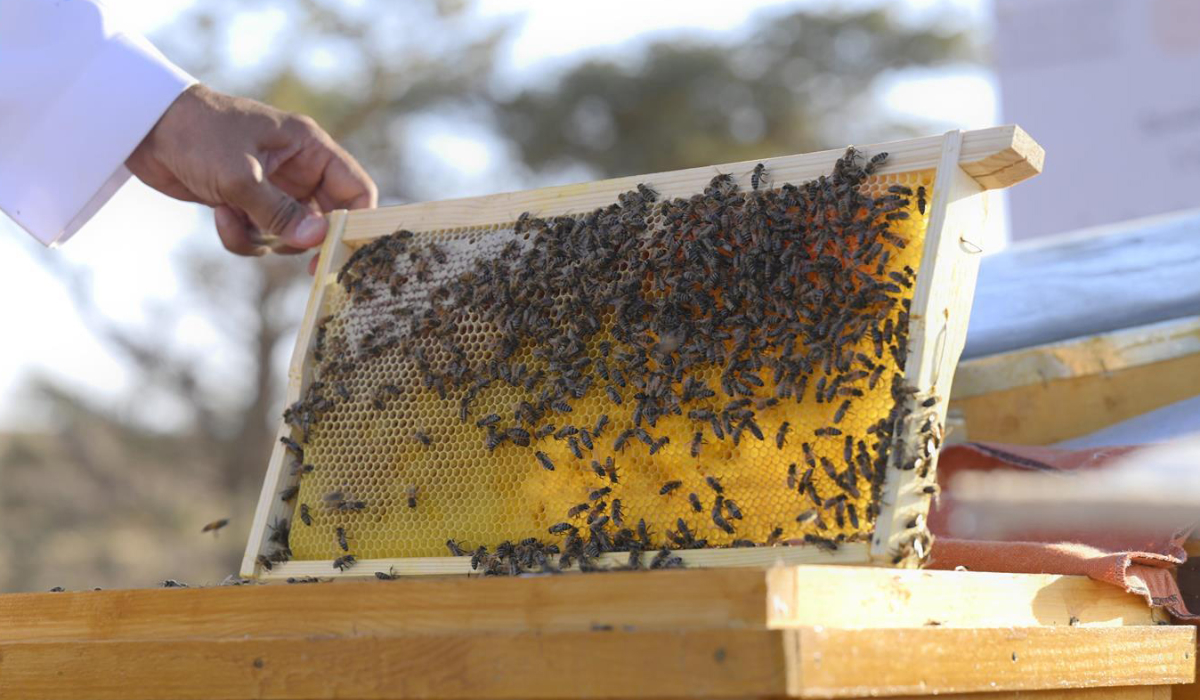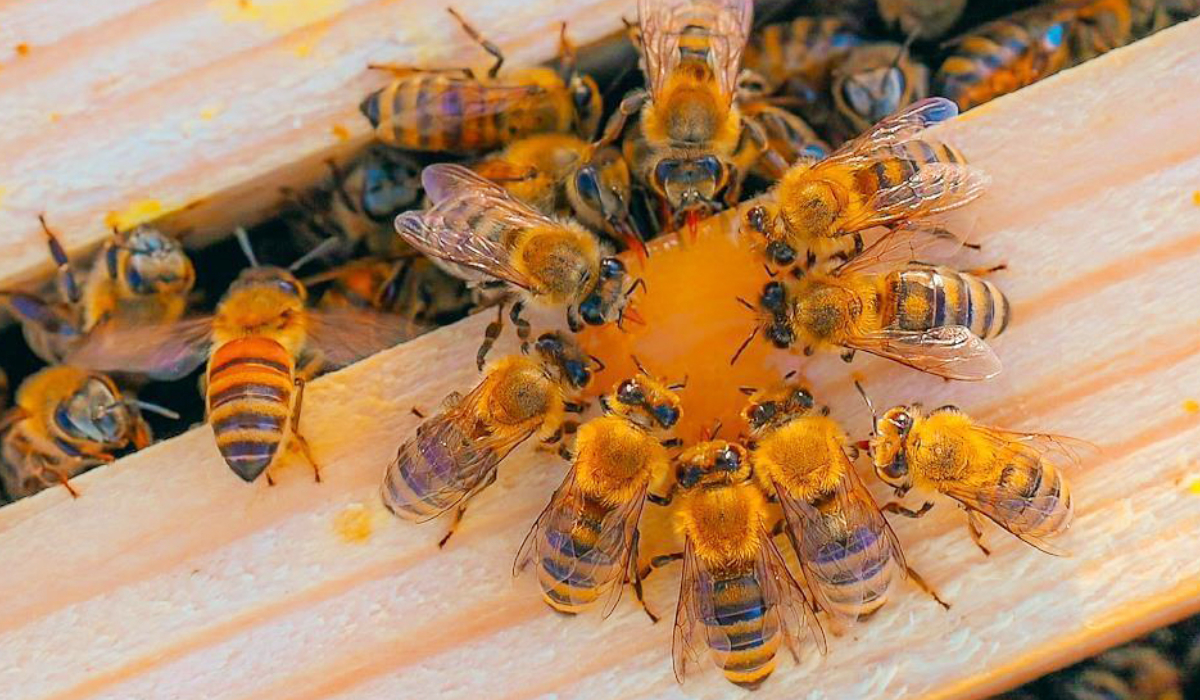RIYADH: The Imam Turki bin Abdullah Royal Nature Reserve Development Authority has said that 25,737 beehives spread across 256 sites in the reserve are participating in this year’s honey production season.
The season, which opened at the beginning of July, will close at the end of April 2025, the Saudi Press Agency reported.

The reserve produces two of the finest types of honey, namely talh and sidr, whose production will continue until the end of September. (SPA)
The authority aims to engage the local community in beekeeping, support the sustainable development of local bee products, encourage innovation, and create job opportunities, boosting farmers’ and beekeepers’ incomes.
Since the launch of the season, the authority has sought to highlight the role bees play in the ecosystem, in plant pollination, and in preserving the biodiversity of the reserve, as well as to demonstrate its commitment to protecting the environment and applying sustainability standards. It has also underscored the importance of honey products as an example of the contribution of natural resources to economic development.

The reserve produces two of the finest types of honey, namely talh and sidr, whose production will continue until the end of September. (SPA)
So far, 109 permits have been issued to beekeepers, according to the authority, which added that the reserve produces two of the finest types of honey, namely talh and sidr, whose production will continue until the end of September. The spring blossom honey production season begins in February and continues until the end of May.
The beekeepers’ season is a distinctive event that contributes to encouraging ecotourism in the reserve by highlighting its picturesque and pristine natural environment, consolidating its position as a unique ecotourism hub.























